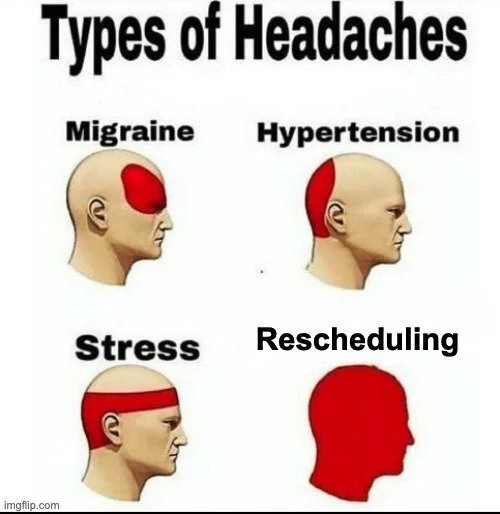
When I started out, I didn't have a formal coaching contract.
This worked okay for a while. Until I got an email one Christmas Eve. It was from a new client who had decided to pull out of my group program at the last minute.
That's when I decided to get serious about my coaching agreement. None of the ones I found online were comprehensive enough. So I worked with a lawyer to create my own.
In this article, I'll explain why you need a coaching contract, exactly what to include, and how to customize each section for your needs.
If you don’t care about any of that, and you just want a free coaching contract template, click the button below:
Important: Although this agreement was reviewed by a lawyer, it should not be considered legal advice. It is a sample agreement to be adapted to your situation and state’s laws in consultation with an attorney.
1. Your contract sets the tone for your engagement. If it's formal and cold, the engagement starts off formal and cold. If it's casual, the engagement starts off casual. Your contract is more than just a legal document; it’s part of the client experience.
2. Your contract outlines what you expect of the client and what the client can expect of you. There's no way you can cover everything in a sales call, and the things you do cover are often misunderstood. For example, are you expected to respond to emails between sessions? If so, how quickly?
3. Your contract predicts where disagreements could arise and then agrees on how to handle them. What happens if your client wants to reschedule their session that starts in an hour? Refer back to the agreement. Any disagreements that arise are an opportunity to update your agreement for the next client.
There are nine main sections:
In this section, I congratulate the client on signing up and define any terms I’ll be using in the contract. I also tell the client what will happen after they sign the contract (e.g. they'll get a link to schedule their first session).
This includes the program length, when the coaching starts, and the primary components of my program.
For example, my most recent 1-1 contract is a 6 month program. It starts when the contract is signed, unless we have agreed on a different start date. And it includes the following:
I didn’t use this for the sample contract, because most people reading this don’t have a team of coaches. But you’ll want to list out the components of your program and go into detail about what each of them includes.
A “pause” is when the the coaching engagement is put on hold. In my contract, there are rules for when the coach needs to pause and rules for when the client needs a pause.
One of the most common times for a pause is when you or a client goes on vacation. If you don't include this section, it's hard to know how to handle time off. So you never take a break.
First, say how much they've already paid (if you collect payment before sending the agreement). Then, say how much they have left to pay (if they didn't pay upfront) and when they'll be charged again.
I also recommend that you include a late payment policy. Even if you charge payments automatically, it's helpful to outline what happens in the case of a failed payment. Do they get hit with a fee? If so, how much is the fee and when does it get added on?
This section outlines what the coach is responsible for and what the client is responsible for. It encourages proactive communication.
In my 1-1 program, there are no refunds or guarantees, so I make that clear in my agreement.
Talk about what the coaching relationship is (e.g. a thought partnership where the client can discuss their goals and challenges). Talk about what it's not (e.g. therapy, legal advice, or tax advice).
This is where you make sure that clients don't steal your program materials or reproduce them in any way without attribution.
It's also where you can get permission to share testimonials from the client.
This is where you limit your liability as a coach. In particular, you want to make sure that the most you'd ever have to pay a client in a dispute is the full price of your program.
We also include a mediation clause in our contract - basically saying that we'd do 30 days of mediation before anything goes to court. You don't ever want to get to this point with a client, but this section outlines the worst case scenario.
This section is basically an agreement about the agreement. Similar to the last section, it includes a lot of legalese. It makes sure that electronic signatures count as real signatures. It says that the agreement shall be goverened by the laws in the state you live in (as opposed to the client's state).
Thank the client for choosing you as their coach and get their signature.